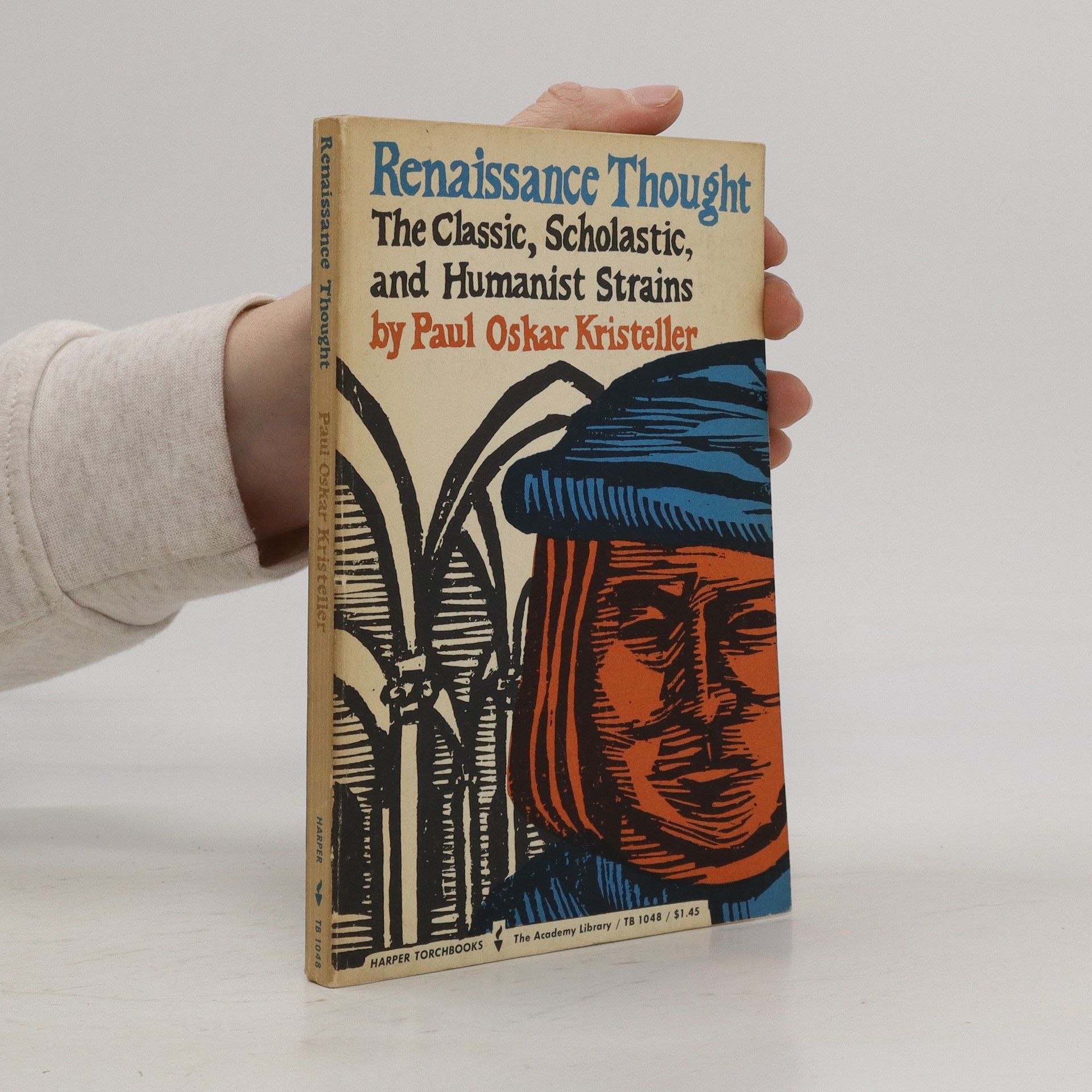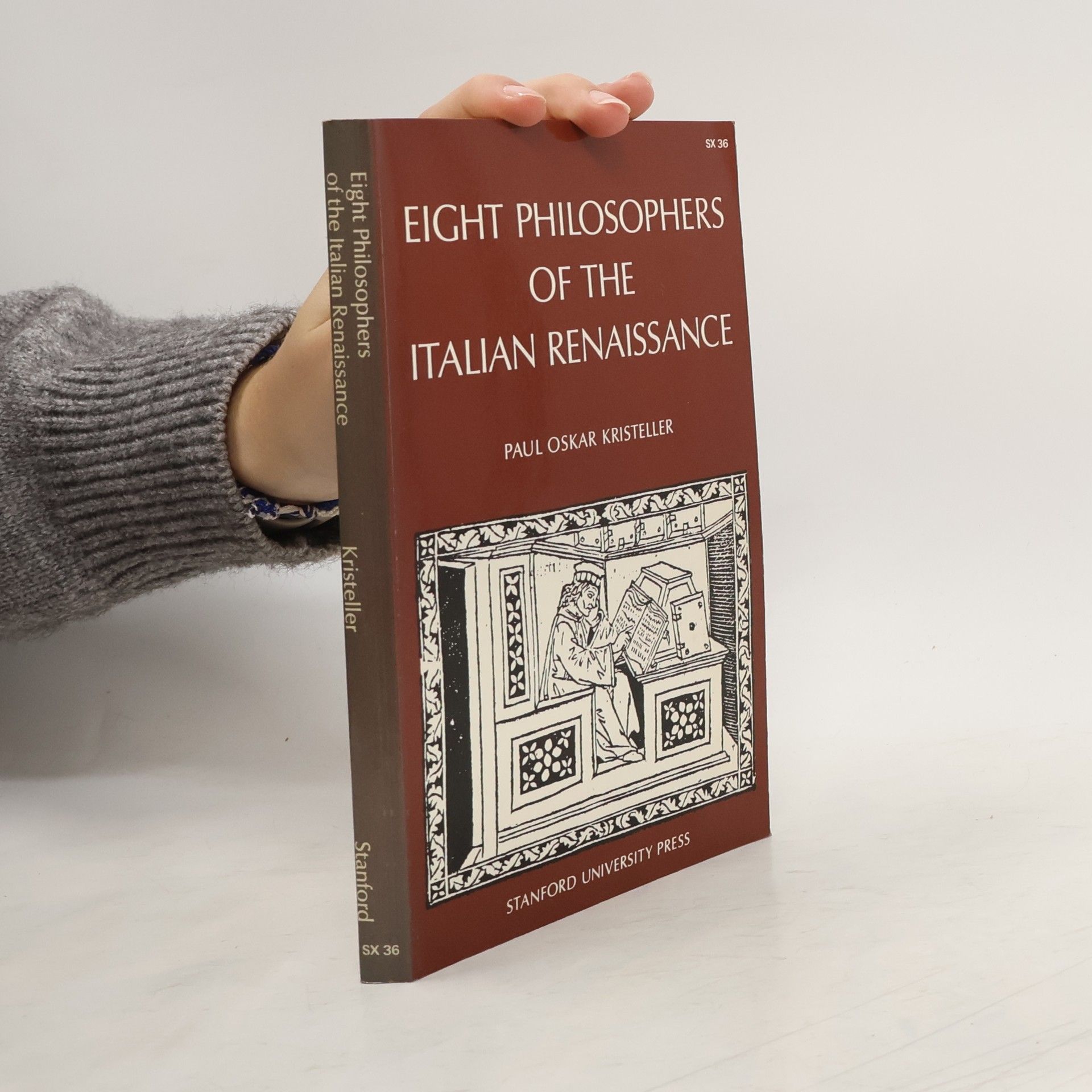Features essays that deal with Renaissance humanism and philosophy, and also with Renaissance theories of art. This title focuses on topics such as humanist learning, humanist moral thought, the diffusion of humanism, Platonism, music and learning during the early Renaissance, and the modern system of arts in relation to the Renaissance.
Paul Oskar Kristeller Boeken
Paul Oskar Kristeller was een belangrijke geleerde van het Renaissance humanisme, die zijn werk wijdde aan de filosofie van dit transformerende tijdperk. Zijn onderzoek verdiepte zich in de sleutelfiguren van het Renaissance-denken, en zijn uitgebreide wetenschap, met name zijn monumentale catalogus van niet-gecatalogiseerde manuscripten, biedt een onschatbare bron voor het begrip van de Renaissance-cultuur. Kristellers invloed reikte tot in de kunstfilosofie, waar zijn essays baanbrekende lezingen werden. Hij leidde ook een belangrijk project dat de receptie van klassieke werken door de Middeleeuwen en de Renaissance in kaart brengt.







Italian Renaissance thought has been gaining ever-increasing recognition as seminal to the thought of the whole Renaissance period, affecting in many subtle ways the development and understanding of artistic, literary, scientific, and religious movements. The importance, then, of this detailed and careful survey of Italy's leading Renaissance philosophers and the intricate philosophical problems of the time can scarcely be exaggerated. Based upon the 1961 Arensberg Lectures, given at Stanford University, this collection of essays offers a genuinely unified interpretation of Italian Renaissance thought by describing and evaluating the philosophies of eight pivotal Petrarch, Valla, Ficino, Pico, Pomponazzi, Telesio, Patrizi, and Bruno. The essays not only discuss the life, writings, and main ideas of these eight thinkers, but also establish through a connective text, the place each of them occupies in the general intellectual development of the Italian Renaissance.
Medieval Aspects of Renaissance Learning
- 212bladzijden
- 8 uur lezen
Greek Philosophers of the Hellenistic Age
- 191bladzijden
- 7 uur lezen
This volume treats a fascinating but much neglected period in the history of ancient philosophy between the third and first centuries BC.
Renesanční humanismus na pozadí portrétů významných dobových myslitelů Čtivé přiblížení myšlenkového světa osmi velkých postav italské renesanční filosofie – Petrarky, Lorenza Vally, Marsilia Ficina, Pika della Mirandola, Telesia, Patriziho a Bruna – a jejich prostřednictvím i vývoje celého renesančního myšlení. Tuto linii doplňuje studie o středověkých předchůdcích renesančního humanismu. Z anglického originálu přeložil a doslovem opatřil Tomáš Nejeschleba.